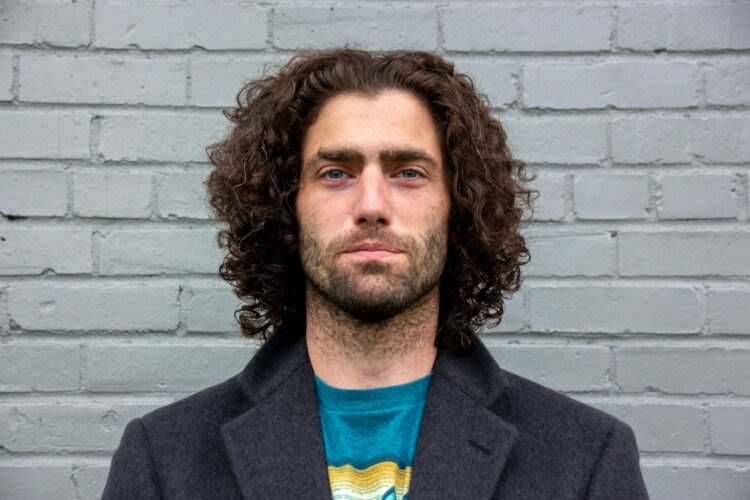
You might have good intentions, but certain habits or reactions can quietly push people away without you noticing. These aren’t loud or obvious behaviors but small patterns that slowly create distance. And because they’re subconscious, they’re hard to catch unless someone points them out. Here are 15 things you’re subconsciously doing that push people away.
You always try to fix people’s problems right away.

When someone shares something hard, it’s natural to want to help—but jumping in with advice too quickly can feel like you’re not really listening. People want to feel heard, not immediately solved. If your first move is always to fix things, they might stop opening up altogether. Sometimes, just being present, nodding, and saying, “That sounds tough,” does more than a dozen solutions ever could.
You avoid being vulnerable, even with people close to you.

Putting up walls to protect yourself might feel safe, but over time, it leaves others feeling like they don’t truly know you. People won’t feel comfortable opening up if you never share your fears, doubts, or struggles. Real connection comes from mutual vulnerability. When you always seem “fine,” people might start thinking you don’t trust them enough to show what’s really going on inside.
You make every conversation about yourself.

It’s easy to slip into telling your own stories when someone shares theirs. You mean well—you’re just trying to relate—but if you keep steering the conversation back to yourself, people start to feel unheard. They might stop reaching out or feel like they’re just background noise. Listening without needing to tell your story every time is a quiet way to show someone they matter.
You respond with sarcasm instead of honesty.

Sarcasm can be funny, but when it becomes your main communication method, people might not know when you’re being real. Over time, it makes others feel like they’re walking on eggshells, unsure if you’re being serious or just deflecting. If you use sarcasm to hide discomfort or avoid emotional moments, people may start pulling back because they’re not sure how to connect with the real you.
You brush off compliments or kindness.

When someone says something nice and you instantly reject it, like “No, I don’t look great,” or “Anyone could’ve done that”, you might think you’re being humble. But over time, it can make others feel like their kindness doesn’t matter. People want to feel appreciated when they offer support. Accepting a compliment with a simple thank-you isn’t vanity—it’s validation that their words made a difference to you.
You constantly need reassurance.

Everyone needs a little reassurance sometimes, but if you’re always asking people to confirm they like you, miss you, or want to be around you, it can wear them out. Over time, it starts to feel like pressure, not connection. People might start pulling away as they think that no amount of comfort will ever be enough, which can turn a good relationship into an exhausting one.
You don’t follow through on what you say.

When you say you’ll call and don’t, or you make plans and cancel at the last minute too often, it starts to build quiet resentment. People want to feel like your word means something. If you’re always dropping the ball, even unintentionally, others begin to assume they don’t matter to you. Consistency, even in small things, is what makes people feel safe and valued in your life.
You don’t give people space.

It’s natural to want closeness, but if you always text first, need constant updates, or get upset when someone takes time alone, it can feel smothering. Everyone needs space to breathe, think, and just be. If you don’t allow that, people might feel trapped or overwhelmed. Giving others room doesn’t mean they’ll leave—it means you trust the relationship enough not to cling too tightly.
You secretly expect people to read your mind.

You might feel upset when someone doesn’t do what you hoped, even though you never told them how you felt or what you needed. Expecting others to “get it” sets them up to fail, and you both end up hurt. Clear, honest communication is hard sometimes, but it’s what keeps relationships strong. No one can meet needs they don’t know exist—no matter how close they are to you.
You’re overly critical of yourself.

People around you may feel helpless or uncomfortable if you constantly put yourself down. At first, they’ll try to lift you up—but if it becomes a habit, they might feel like nothing they say makes a difference. You might think you’re being real, but to others, it can feel like never-ending negativity. Being kind to yourself helps others feel safer and more at ease around you too.
You always play it cool and avoid emotional depth.

Staying “chill” all the time might seem like the best way to avoid drama, but it can also make people feel like you’re emotionally unavailable. If you never show strong feelings or admit that something bothers you, others might assume you don’t care much. Most people want realness, not perfection. Letting your guard down just a little can make relationships feel more honest and alive.
You react defensively to feedback.

If someone tries to bring up a concern and your first reaction is to explain, argue, or shut down, it becomes hard for them to be honest with you. Over time, people stop giving feedback—not because everything’s fine, but because they don’t want a fight. If every conversation turns into a defense of your actions, others may start walking away instead of talking it out with you.
You hold on to past mistakes too tightly.

Whether it’s something you did or something someone else did, carrying it around without ever letting go can weigh down your relationships. It becomes hard to move forward if you’re always bringing up old wounds or reminding people of what went wrong. Eventually, they feel stuck in the past with you, and that can make even strong connections fade. Healing involves choosing not to carry everything with you forever.
You over-apologize for everything.

Saying sorry when you’ve made a mistake is a good thing—but if you’re apologizing for speaking, asking questions, or simply existing, it can make others uncomfortable. People might not know how to reassure you all the time, and it may feel like you’re always walking on emotional eggshells. Constantly apologizing can seem like low self-worth, and over time, it shifts the balance in the relationship in a draining way.
You never ask for help, even when you need it.

Trying to handle everything alone might seem strong, but when you never lean on others, they may feel like you don’t trust them. People want to feel needed, and letting them in—just a little—helps create closeness. If you always say, “I’ve got it” or “I’m fine,” even when you’re not, it pushes people away without meaning to. Connection often starts with a simple, honest “Can you help me?”

